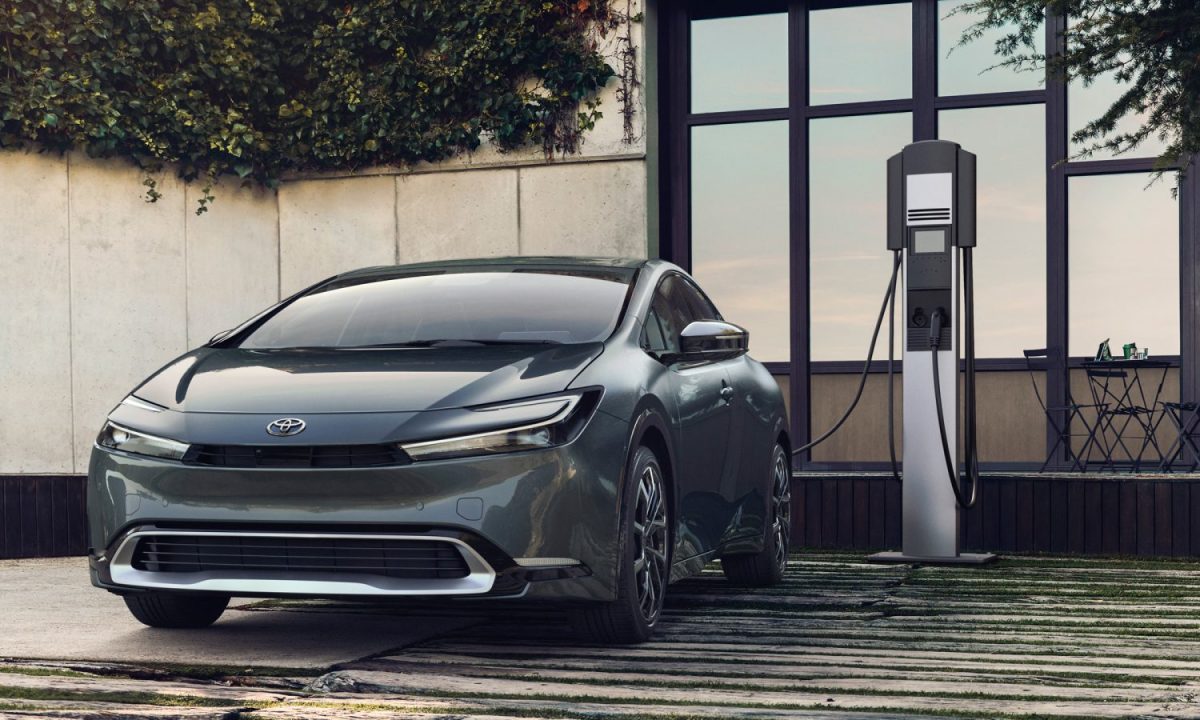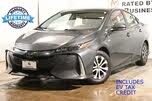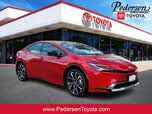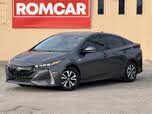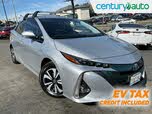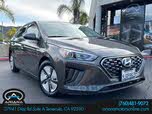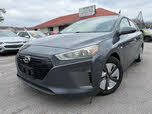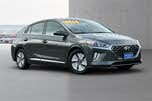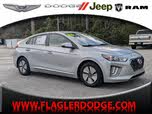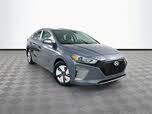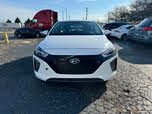Toyota Prius Prime vs Hyundai Ioniq Hybrid
Overview | ||
Years produced | 2017-2024 | 2017-2023 |
MSRP | $28,220 | $22,400 |
Average price | $24,029 | $15,653 |
Listings | ||
Ratings & Reviews | ||
User reviews | ||
Expert reviews | 6.5 out of 10Read full review | 8.3 out of 10Read full review |
Pros & cons | Pros
| |
Summary | With the 2021 Prius Prime, Toyota does what Toyota does best—packaging. The car comes with a good list of standard equipment and features while maintaining the range and efficiency qualities that plug-in hybrid shoppers are looking for. But a hard-to-use infotainment system and slow acceleration eat into the ownership experience as the market gets increasingly more competitive. | I love spikes in gas prices. Seriously. My Southern California neighborhood gets quiet because all the people with loud motorcycles and fast muscle cars and giant trucks with oversized mud tires stop driving like they’ve got something to prove. When gas prices begin to climb, they'd all be well-served by trading in their gas-guzzlers for a 2019 Hyundai Ioniq Hybrid. When it whirs about in electric vehicle mode, the Ioniq even sounds cool. My second-grader said so. |
Video | ||
Popular Features & Specs | ||
Engine | 1.8L 121 hp I4 Hybrid | 1.6L 139 hp I4 Hybrid |
Drive Train | FWD | FWD |
Seating Capacity | 5 | 5 |
EV Battery Capacity | 8.8 kWh | 1.6 kWh |
MPG City | 55 | 57 |
MPG Highway | 53 | 59 |
Battery Charge Time (120V) | 5.5 hours | |
Battery Charge Time (240V) | 2 hours | |
Engine | ||
Engine Name | 1.8L 121 hp I4 Hybrid | 1.6L 139 hp I4 Hybrid |
Battery Charge Time (120V) | 5.5 hours | |
Battery Charge Time (240V) | 2 hours | |
Drivetrain | FWD | FWD |
Fuel Economy | ||
EV Battery Capacity | 8.8 kWh | 1.6 kWh |
MPG City | 55 | 57 |
MPG Highway | 53 | 59 |
Interior | ||
Seating Capacity | 5 | 5 |
Safety | ||
Front Crash Overall | 4 | |
Side Crash Overall | 5 | |
Dimensions & Capacity | ||
Cargo Space | 19.8 cu ft | 26.5 cu ft |
Curb Weight | 3365 lbs | 2996 lbs |
Height | 57.9 in | 56.9 in |
Length | 182.9 in | 176.0 in |
Width | 69.3 in | 71.7 in |
Wheelbase | 106.3 in | 106.3 in |
Maximum Payload | 840 lbs | 939 lbs |
Number of doors | 4 | 4 |

By: CarGurus + AI
At CarGurus, our team of experienced automotive writers remain at the heart of our content operation, conducting hands-on car tests and writing insightful guides that are backed by years of industry experience. To complement this, we are harnessing AI to make our content offering more diverse and more helpful to shoppers than ever. To achieve this, our AI systems are based exclusively on CarGurus content, ratings and data, so that what we produce is both unique to CarGurus, and uniquely helpful to car shoppers.
Popular vehicle comparisons
Hyundai Ioniq Hybrid vs Kia Niro Hybrid Plug-InToyota RAV4 Hybrid vs Toyota Prius PrimeNissan LEAF vs Toyota Prius PrimeToyota Prius Prime vs Ford Escape Hybrid Plug-inHyundai Ioniq Hybrid vs Hyundai Ioniq 5Toyota Prius Prime vs Toyota Camry HybridToyota Prius Prime vs Toyota Corolla HybridHonda Civic vs Toyota Prius PrimeToyota Prius vs Toyota Prius PrimeToyota Prius Plug-In Hybrid vs Toyota Prius PrimeToyota Prius Prime vs Toyota RAV4 PrimeToyota Prius vs Hyundai Ioniq Hybrid
